Projects
Current Projects
FEWL - Enhancing Research on the Integration of Formal Educational Programmes and Workplace Learning
2023-2025
Project team: IngeTimoštšuk, Krista Loogma, Maria Erss, Reeli Liivik, Janika Leoste, Kaidi Nurmik, Maret Aasa, Triin Roosalu, Merle Pajus, Anne-Mai Näkk, Helene Uppin, Erle Neeme, Marti Taru
The Twinning project aims to enhance excellenceand research potential in the field of researchon integratingformal education andworkplace learning (WPL) for students in basic and secondary schools. Facilitating multifaceted capacity building at the School of Educational Sciences (SES) at Tallinn University (TLU)in this field will be achieved through partnership: Finnish Institute for Educational Research at the University of Jyväskylä, and Institute of Educational Sciences at Paderborn University.

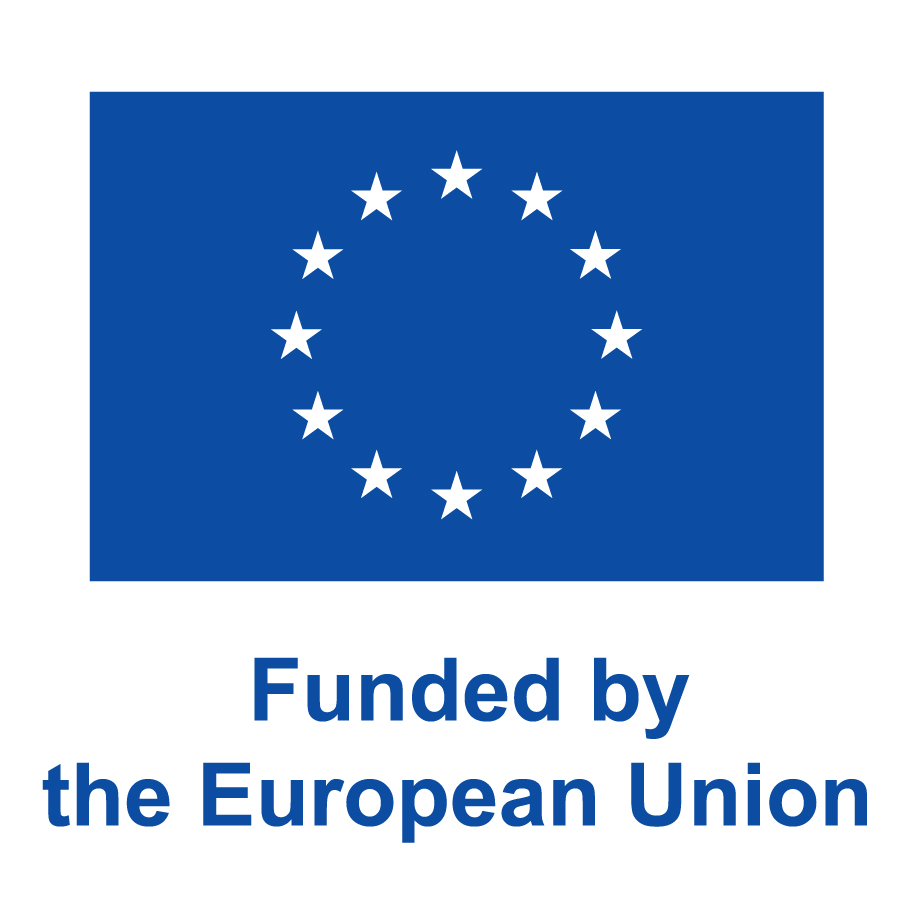
This project has received funding from the European Union’s Horizon Europe research and
innovation programme under grant agreement N°101079237.
EdTech Talents
2023-2027
Project team: Janika Leoste, Maire Tuul, Martin Sillaots, Aija Sakova, Sirje Virkus, Dunja Jusufovski, Mart Laanpere, Kaja Mädamürk, Kristjan Kask, Madis Saluveer, Kadri Mettis, Matti Juhani Rossi, Sirly Väät
Emerging digital education technologies & supporting academia-business collaboration, specifically increasing the capability of researchers and research institutions in EU Widening countries to create spin-off enterprise.

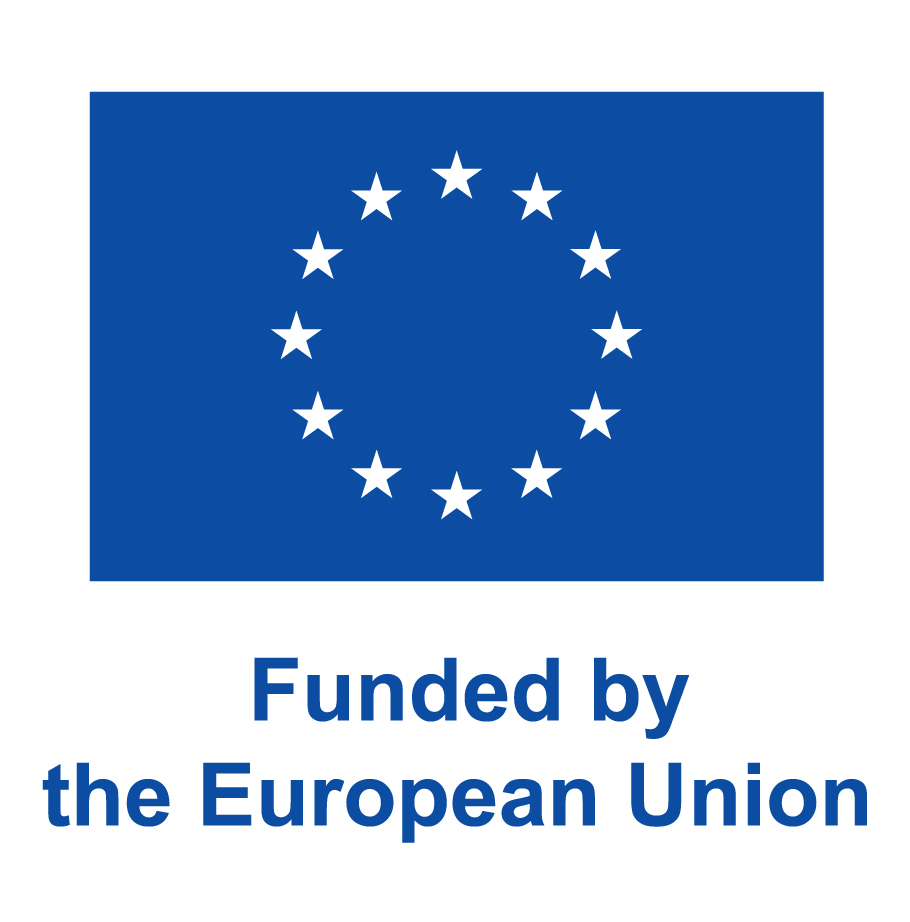
This project has received funding from the European Union’s Horizon Europe research and
innovation programme.
Academy4Business
2023-2025
Project team: Janika Leoste, Sirly Väät, Meidi Sirk, Sirje Virkus, Katrin Männik, Sirje Rekkor
Academy for Business project partners are motivated to co-design a cross-border blended digital course for academy and business to boost the entrepreneurial and scientific mind-sets for future entrepreneurs and knowledge workers in EdTech. This capacity-building project aims at reducing the cap between the academic and business worlds by reciprocal knowledge transfer between the academic and business sectors. The students and professors are supported to acquire an entrepreneurial mind-set while the business sector actors are introduced to use the evidence- and science-based approaches in their business.
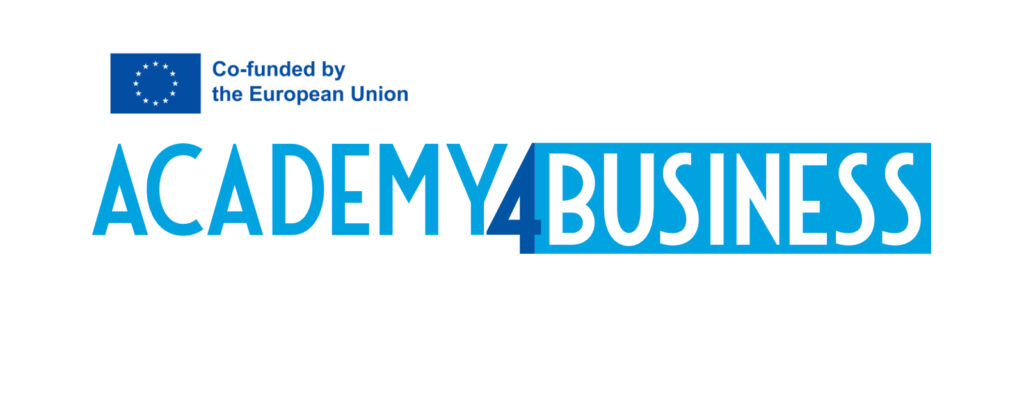
Funded by European Commission Erasmus (2022-2-EE01-KA220-HED-000100644).
e-DIPLOMA - Electronic, Didactic and Innovative Platform for Learning based On Multimedia Assets
2022-2025
Project team: Kai Pata, Terje Väljataga, Andrea Annus, Mairi Matrov, Halliki Põlda, Katrin Karu
The e- DIPLOMA project will establish e-learning in an upper quality level in a three years´research project, posing the use of Augmented Reality/VirtualReality, Artificial Intelligence, Interactive Technoligies, chatbots and gamification in a newly designed e-learning platform.

Funded by Horizon Europe Programme (HORIZON-CL2-2021-TRANSFORMATIONS-01).
GOT - Building Capacity for Online Tuition in Ghana
2023-2025
Project team: Terje Väljataga, Kadri Mettis, Linda Helene Sillat, James Sunnay Quaicoe
There is opportunity to change course digital delivery in higher education institutions in Ghana and build sustainable digital learning policy in sub-Saharan Africa. Scaling up digital education delivery calls for strategic planning and development of existing and innovative pedagogical methods specific to digital delivery. The project will result in the development of an educational research based action plan, which will include the development of the delivery system and training.
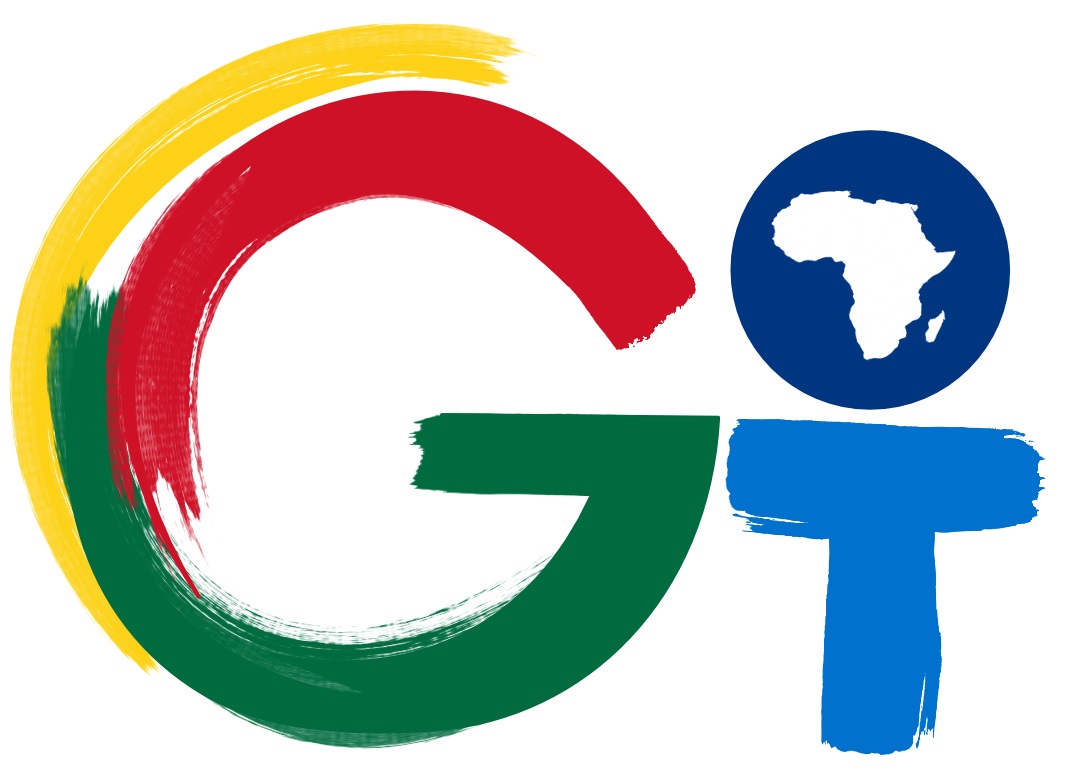
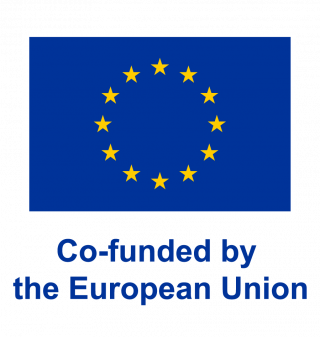
Funded by European Commission Erasmus "Capacity building in the field of higher education".
AITE - Artificial Intelligence in (Teacher) Education
2023-2024
Project team: Priit Reiska, Eve Eisenschmidt
The main and general objective of this project is to create a new Erasmus Mundus Joint Master’s degree programme that connects education professionals with the rapidly growing role of Artificial Intelligence (AI) in education, research and teaching.
Funded by European Commission Erasmus Mundus Design Measures (ERASMUS-EDU-2023-EMJM-DESIGN).

EdTech Hackathon
2023-2025 Project team: Janika Leoste, Kristof Fenyvesi, Sirje Virkus, Katrin Männik, Sirly Väät
The tender will be organised in view of establishing a service contract for further developing and scaling up the Digital Education Hackathon; managing, expanding and engaging its community; supporting the dissemination and implementation of valuable solutions; linking the initiative with the Digital Education Hub.
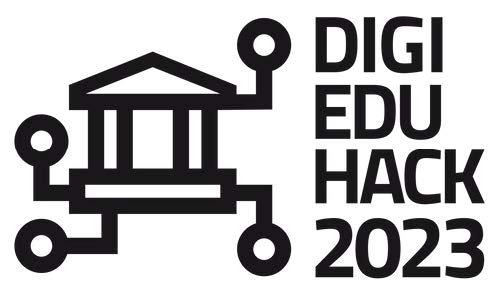
![]()
Funded by European Commission.
Digital cultural heritage as a resource for social development
2024-2026
Project team: Pille Runnel, Pille Pruulmann-Vengerfeldt, Kai Pata, Agnes Aljas, Mahendra Mahey
A significant part of museum collections is digitally available to Estonian people. It is an invaluable social resource with great potential to contribute to sustainable development. The rapid social, economic and technological development leads to polarization and a sense of discontinuity, but heritage can help people cope with change. Museums help to cope with transition when their resources find application in society. The task of the research work is to develop the capacity of various target and stakeholder groups (creative sector, citizen science activists, senior citizens) and museums in the use of digital cultural heritage. The goal of the project is to develop methods of co-creation for understanding digital cultural heritage, using it in various fields and transferring knowledge related to heritage. The output of the project is at least three experimental applications of digital heritage created collaboratively and a methodological toolbox for empowering digital co-creation.
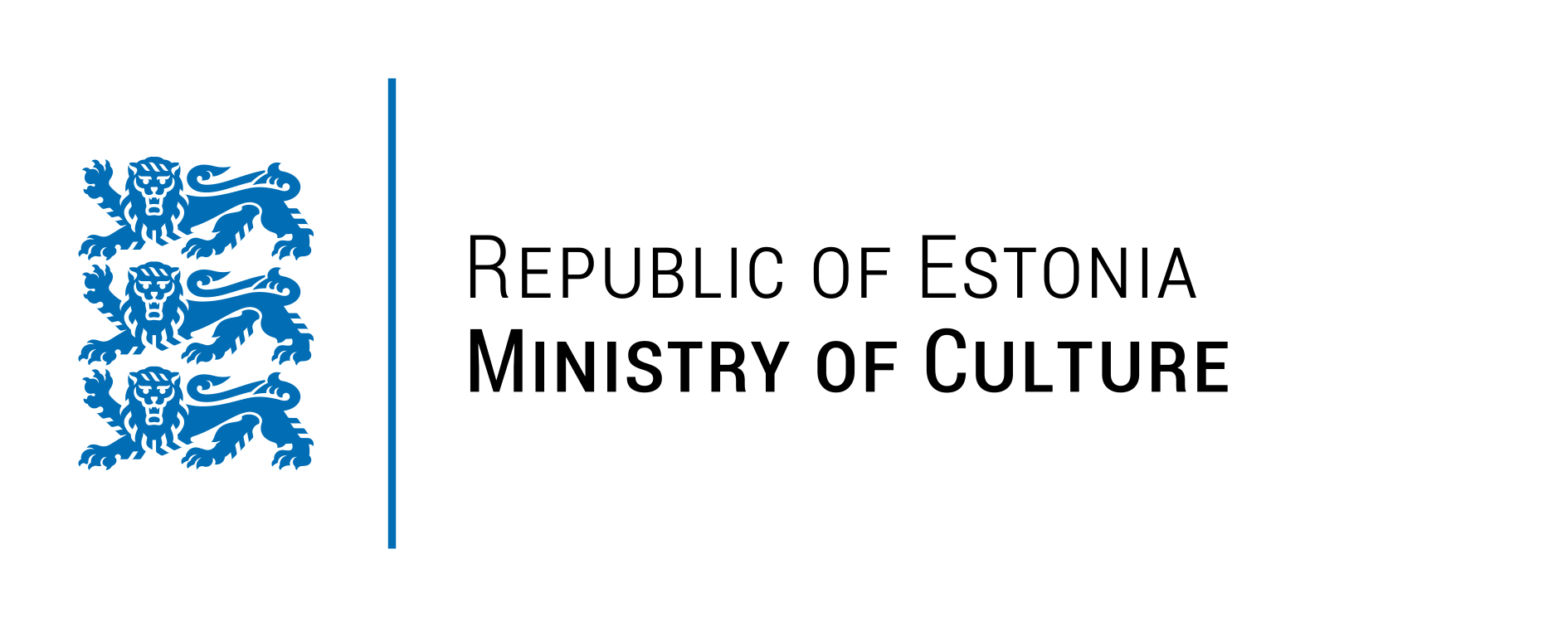
Funded by the Ministry of Culture.
digiTED - Development of digitalisation in teacher education
2022-2025
Project team: Terje Väljataga, Kadri Mettis, Linda Helene Sillat
The overall aim of the digiTED@EU project is to promote and facilitate digitalisation among teacher educators in Europe (and beyond). The project aims to 1) develop a hybrid programme for professional development that enhances the digital skills, competences and creativity of teacher educators; promotes the readiness of teacher educators to teach online and to design and organise digital courses; provides resources for tech-based assessment and feedback for teacher educators. 2) empower teacher educators to become more involved, creative and active in their own learning and development 3) stimulate transnational and interdisciplinary collaboration on all levels in regard to digital teaching practices of teacher educators 4) promote the creation of a European Digital Education Hu. 5) provide concrete recommendations for policy-makers to generate practice-oriented digitalisation strategies on a European, national, and also institutional level 6) help teacher education to become more professional and reputable.
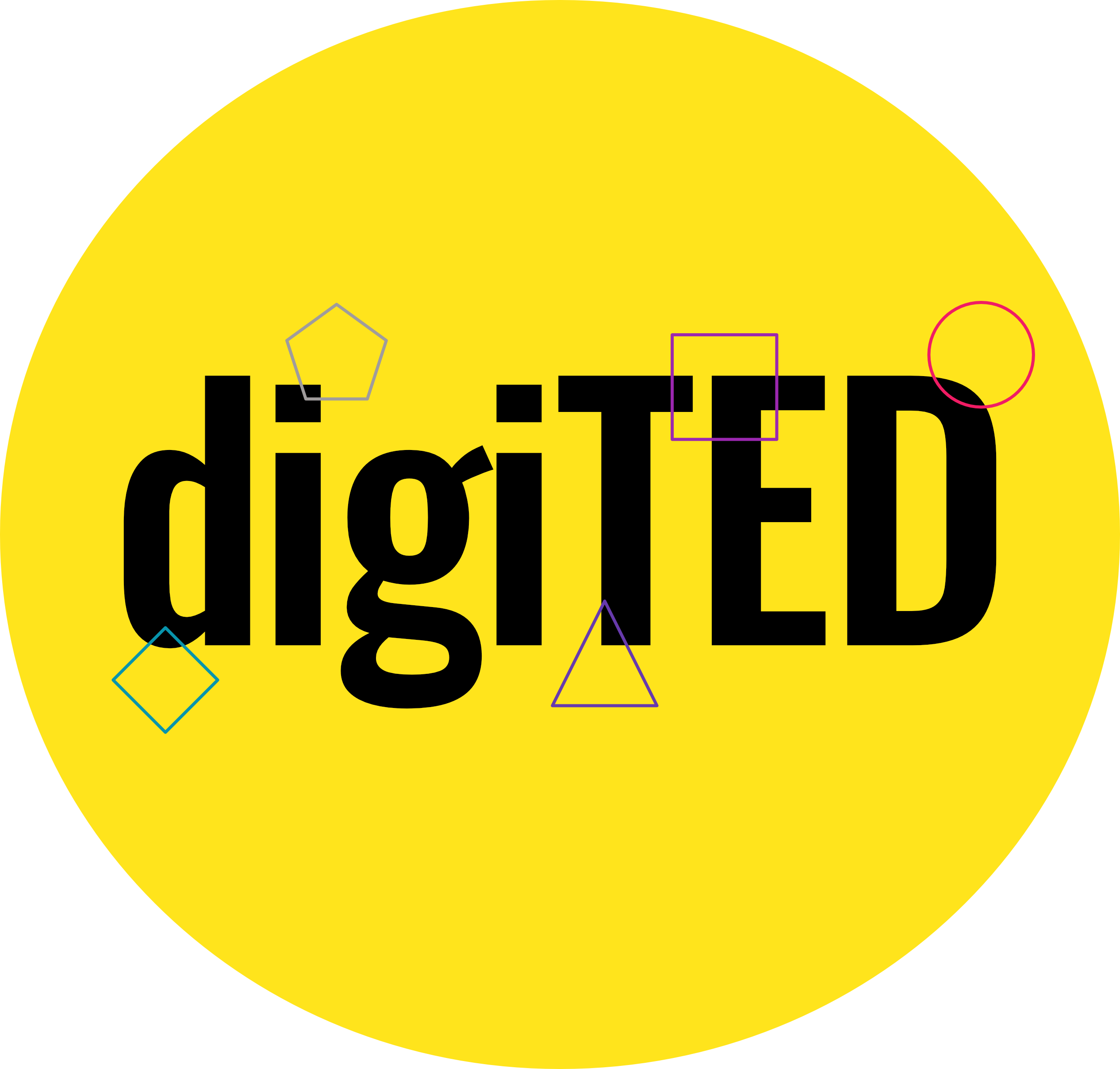

Funded by European Commission Programme Erasmus+KA220-HED.
WINnovators - Boosting entrepreneurial and STEM/STEAM capacity of young Women in higher education institutions for sustainable development and INnovation
2021-2024
Project team:
Kai Pata, Terje Väljataga, Ilona-Evelin Rannala, Kristi Jüristo
Increasing entrepreneurship and STEM / STEAM capacity in higher education, focusing on sustainable and innovative development. Particular attention will be given to promoting gender equality and addressing differences in relation to the access and use by underpresented groups. Target groups are: HEI educators and students from future educators in HEIs disciplines; young underprivileged women between 18 and 30 years old, from rural communities, or outskirts; innovation and entrepreneurship organisations and HEIs with digital, STEM/STEAM and sustainability competences and with associated partnership with STEM/STEAM tech SMEs.
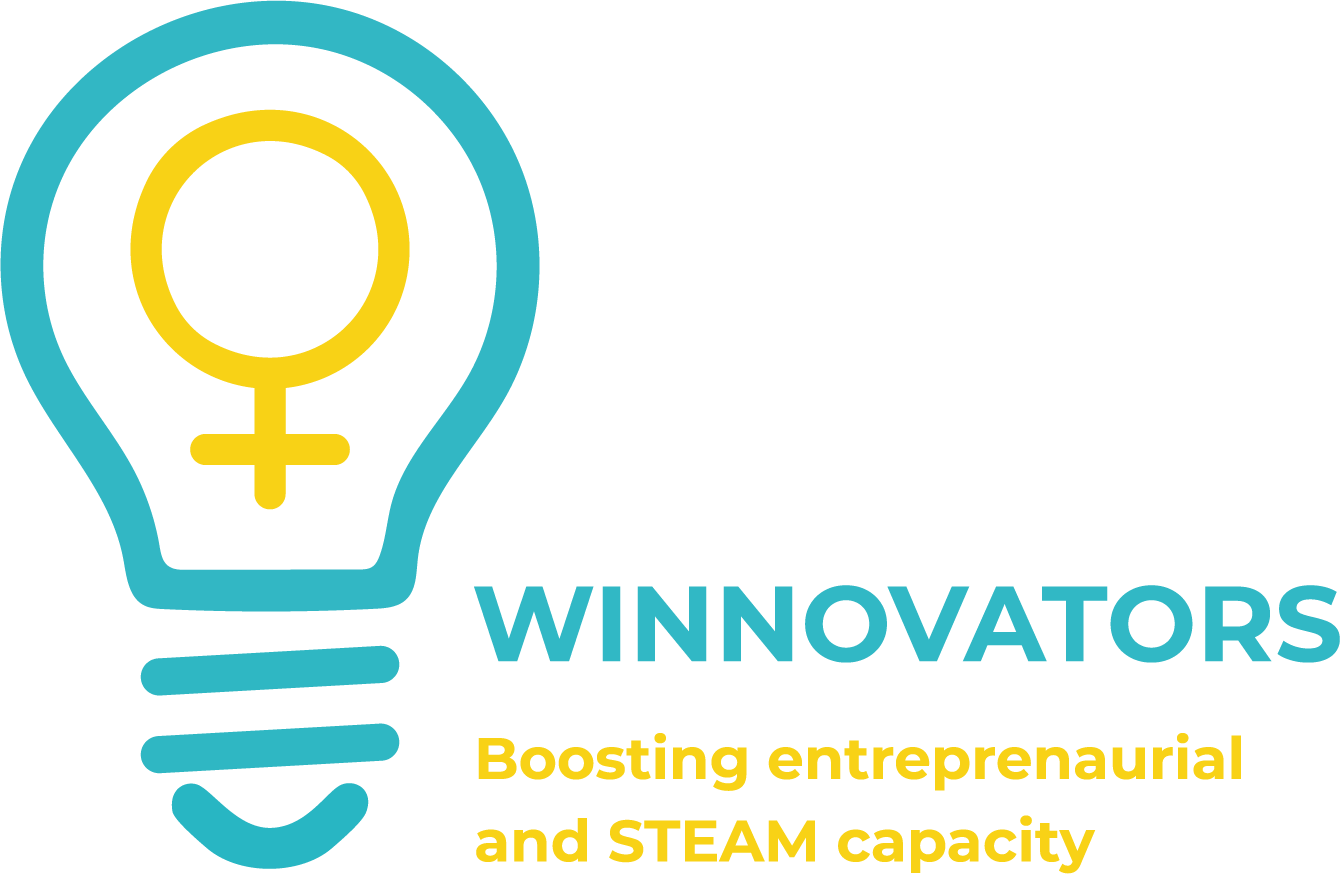
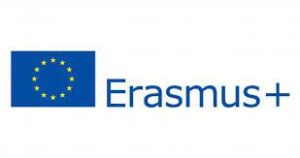
Discovery trail - Systematic use of digital outdoor learning tool
2021-2024
Project team: Elina Malleus-Kotšegarov, Esta Kaal, Mihkel Kangur, Grete Arro, Jaanus Terasmaa, Arko Olesk
The partners of the "Discovery Trail" project from Estonia, Finland, Greece and Austria bring together the fields of education, psychology, ecology and educational technology and explore the possibilities of using the digital solution of the Discovery Trail in nature education. In the course of the project, we will translate the Discovery Path application into different languages, develop technical solutions (to be more user-friendly), and introduce the application and paths created with local and international training to teachers and nature education centers in the participating countries. In addition, multilingual examples will be developed in the field of biodiversity to support the meaningful use of the application, and their potential impact on changing students' perceptions of biodiversity will be explored.

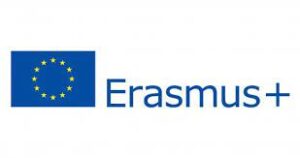
Supporting Ukraine through citizen engagement at Baltic Universities
2023-2025
Project team: Lianne Teder, Kai Pata, Larissa Jõgi, Triin Roosalu, Daniele Monticelli
Analysis, design, implementation and assessment of citizen engagement actions within and beyond Baltic HEIs. Stimulating innovative educational practice and staff upskilling at Baltic HEIs through cross-cultural intercomprehension, tolerance, citizen engagement, business-academia cooperation. General objective of the Baltics4UA project is to Enhance Baltic universities’ social responsibility through civic engagement actions to address Ukrainian humanitarian crisis in the Baltics.
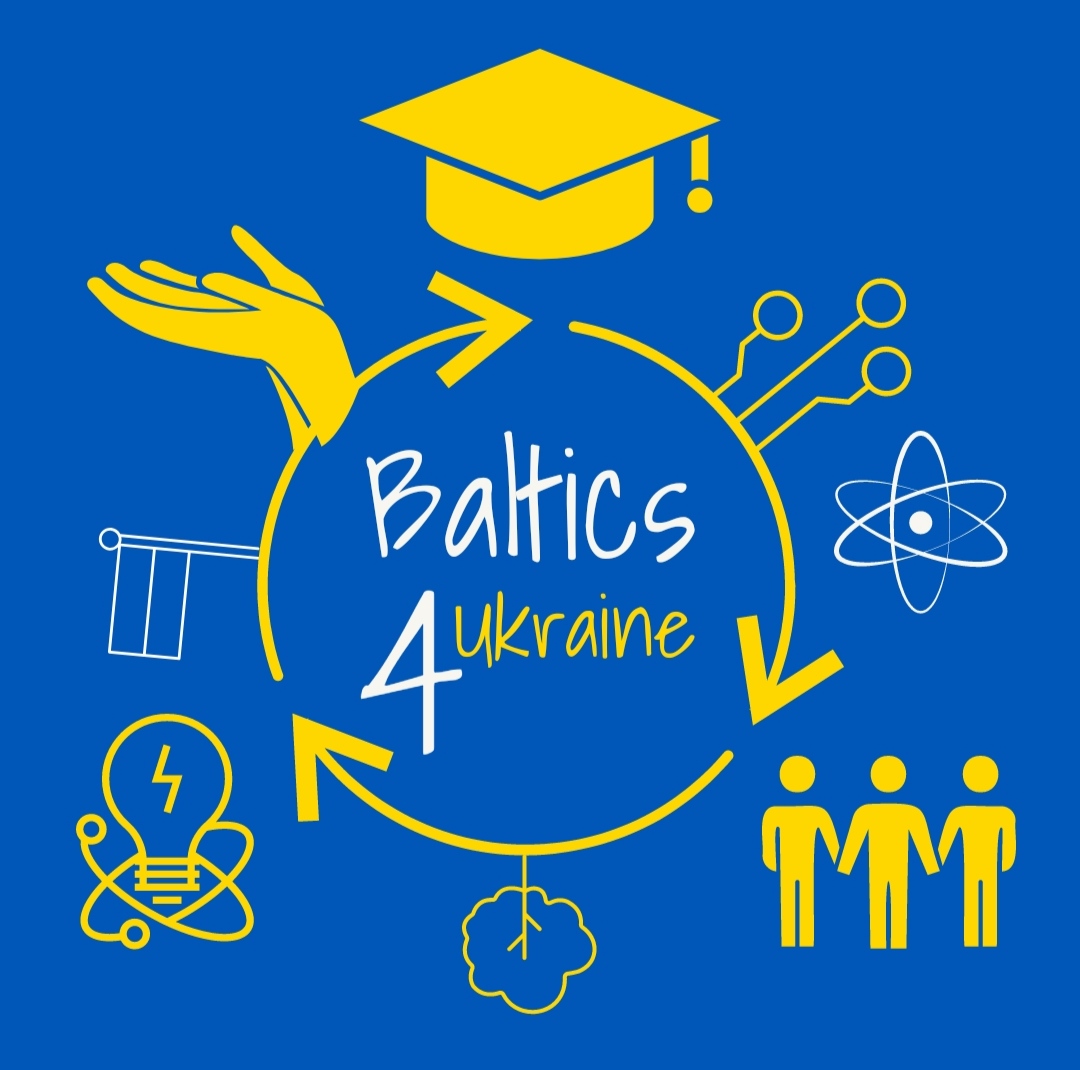
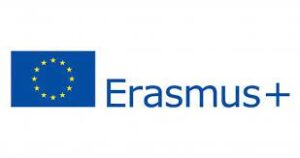
Funded by Erasmus+ Cooperation partnerships in higher education (KA220-HED).
Developing and enhanching the teaching quality of inclusive education curriculum
2019-2024
Project team: Katrin Poom-Valickis, Triin Ulla, Tiia Õun, Piret Soodla, Tiiu Tammemäe, Lii Lilleoja, Ene Varik-Maasik, Eliis Ait
The aim of the project is to equip both acting and future teachers with knowledge, skills and competencies necessary to promote inclusiveness and decrease segregation of SEN students. The objective is to enhance inclusive education and promote the development, testing and implementation of innovative practices in the field of teacher training in inclusive education. The project will help to identify and address the causes that prevent teachers from supporting SEN pupils´ integration into regular classrooms and implementing the principles of inclusive education, as well as to strengthen the competencies and capacity of the Estonian universities in this field.
Funded by SA Archimedes.
Co-Creating inclusive school communities
2021-2024
Project team: Eve Eisenschmidt, Kätlin Vanari, Piret Oppi, Krista Keedus, Reet Sillavee, Berit Silvia Kondratiev
The main aim of the project is to support schools in strengthening inclusive school communities in which every participant is welcomed, respected, valued and given a voice and that embrace and appreciate diversity in culture, religion, gender, ability or socio-economic background. Within this project, the focus is on the social environment where all school community members are given a voice. Through inclusive school communities, schools can increase engagement with actors within and outside the school community and are more likely to secure sustainable improvements towards the best and equal opportunities for all learners.
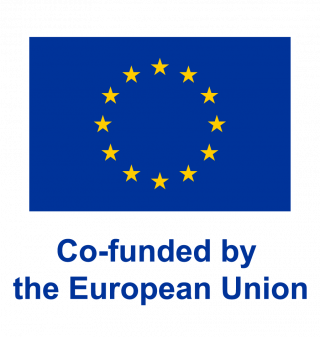
Funded by European Commission.
Improvement support for educational institutions
2022-2029
Project team: Krista Keedus. Eve Eisenschmidt, Kätlin Vanari, Piret Oppi, Berit Silvia Kondratjev, Joosep Norma
TLÜ works in cooperation with HAKA on a development program of up to three years, which promotes a learner-centered culture and evidence-based management. Within the framework of the project, criteria and principles for the selection of educational institutions participating in the development program will also be developed for the involvement of the head of the educational institution participating in the development program.
Funded by Education and Youth Board.
Leading an Educational Institution as a Novice Headmaster
2024
Project team: Eve Eisenschmidt, Reet Sillavee, Kätlin Vanari, Daniel Reinaru, Riina Stahl
The education sector strategy stipulates that by 2035, curricula will increasingly support learner-centered approaches; the volume and content of education will be better aligned with the development needs of society and the labor market. Curriculum development and implementation are evidence-based and inclusive. In other words, the focus of school leaders and leading educators must further shift towards leading learning. The competency model and career model for educational institution leaders necessitate continuous self-analysis, development goal-setting based on it, and the selection of realistic strategies to achieve objectives. Therefore, there is a need to emphasize data utilization and evidence-based decision-making skills in the preparation of novice leaders. The program is targeted at school leaders with up to two years of tenure.
Funded by the Ministry of Education and Research.
Facilitating the development of ICT competencies among Kenyan professionals through a structured training and practical internship program in Estonia.
2023-2024
Project team: Hele-Leek Ambur, Peeter Normak, Ingrid Hinojosa
Tallinn University collaborates closely with the Estonian Development Cooperation NGO (ESTDEV) and hosts 20 Kenyan information technology specialists as part of the Digital Explorers 2 project. The aim is to provide them with opportunities for career development in leading European technology centers. The university's participation in international academic life is essential for ensuring quality and sustainability. The Institute of Digital Technologies has developed an English-language training program focusing on application programming and user experience, aiming to promote ICT courses supportive of the digital transformation. The training mainly takes place in a practical format, deepening participants' knowledge and skills through the development of real software solutions. Additionally, the university's academic department provides support and counseling to visiting students, with the project being led by the Center for Educational Innovation. The goal is to support open and inclusive digital governance in Kenya, drawing on Estonian expertise, with funding provided by the European Union and the Republic of Estonia.
Preparation and implementation of the National Defence Education Development Program 2024/25
2024-2025
Project team: Maret Aasa, Meidi Sirk
The project encompasses the development (including research) of the micro-degree curriculum in national defence education and the sustainable training of national defence educators at Tallinn University, based on the content of the optional course "National Defence Education" in the national curriculum for upper secondary schools. Research activities focus on the formation of national defence educators' understanding of the nature of teaching and their comprehension of roles in teaching national defence education in general and vocational education.
Funded by the Defence Resources Agency.
Preparation of teaching assistants and making their utilization more accessible to schools and pre-school educational institutions
2024
Project team: Tiia Õun, Mari-Liis Lind, Elina van der Toom
In the context of implementing the action plan for transitioning to Estonian-language instruction, this initiative involves preparing and supporting teaching assistants, as well as making them more accessible to schools and pre-school educational institutions.
Funded by the Ministry of Education and Research.
CitiesGoGreen - Application for the development of green and smart city
2021-2024
Project team: Janika Leoste, Inge Timoštšuk, Kaidi Nurmik, Sirly Väät, Mihkel Kangur
CitiesGoGreen aim to bring together environmental education, the method of gamification and STEM as an educational tool. The main objectives of the project are the following: 1. To cultivate the environmental consciousness of pupils together with other transversal skills and competences. 2. To develop a theoretical framework based on which it will cultivate the environmental consciousness of primary school pupils of age 10-12 years 3. To engage pupils with STEM and to develop the key skills of pupils through STEM 4 To design a state of the art game that will combine ENVIRONMENTAL CONSCIOUSNESS, Gamification and STEM 5. To develop an assessment tool that will be used prior and after the game to measure the skills gained through the game. The main focus of the assessment tool is the assessment of environmental consciousness. However other skills developed through STEM and through gamification will also be developed. The objective of this project is to educate pupils in the age of 10-12 years old on the importance of being green, and demonstrating sincere interest in the environment.
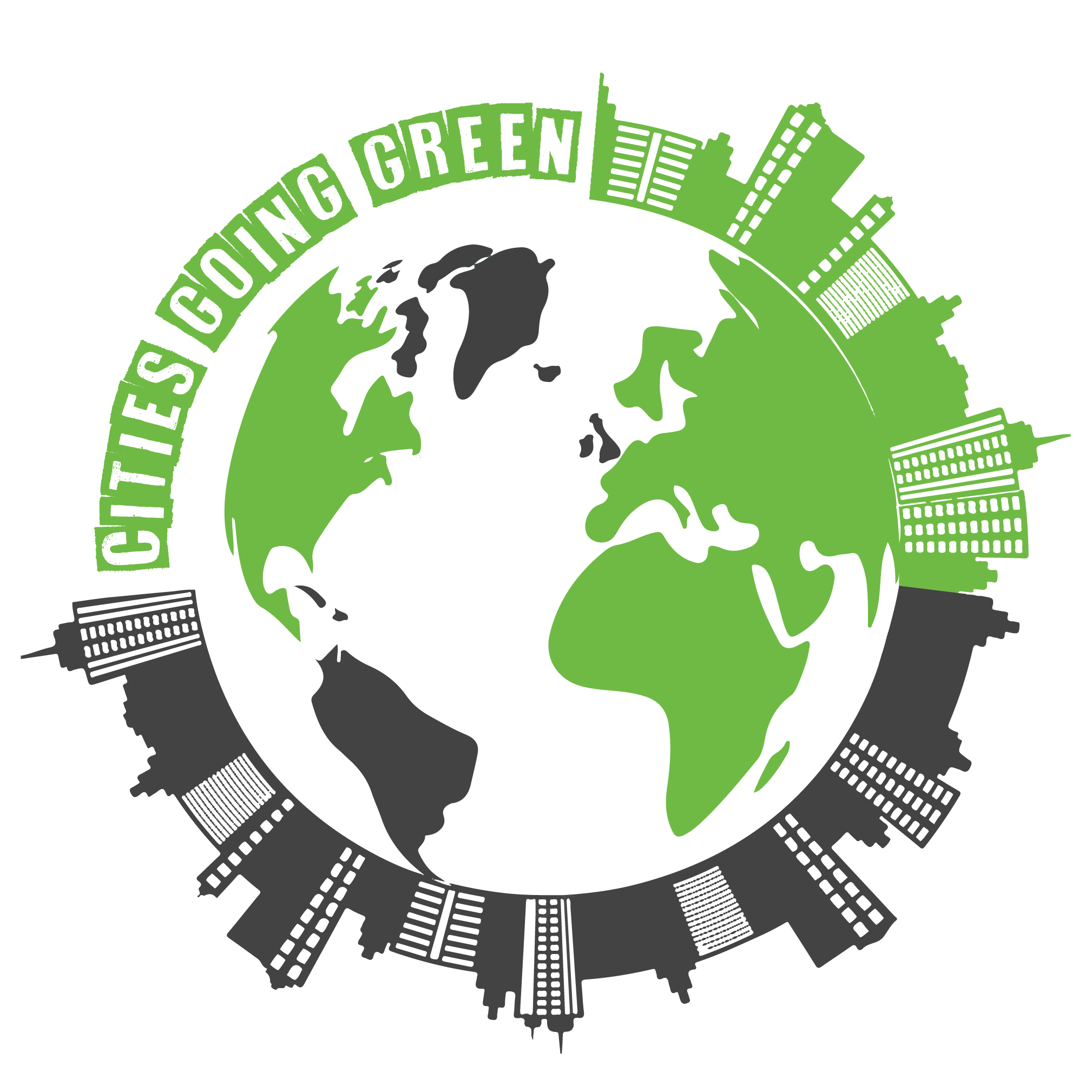
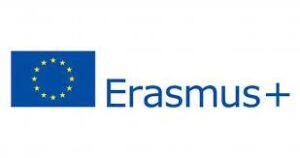
Funded by Erasmus+ KA220-SCH-Cooperation partnership in school education.
Developing green skills horizontally
2023-2024
Project team: Katrin Männik, Maarja Lehtsaar, Grete Arro, Jaanus Terasmaa, Kai Pata
Developing green skills horizontally is implemented within the Green Skills Programme led by the Education and Youth Board and the Ministry of Education and Research. The programme is to support the development of business skills on green transition, which include general skills but also field-specific green skills. The 9th consortia of the programme “Developing green skills horizontally” focuses on: the concept development, analysis and development of curricula, university teacher training on green skills. The approach follows the comprehensive view on green skills including knowledge, attitudes and skills.

Funded by the Ministry of Education and Research.
Research Partnership of Ministries for Achieving EU 2030 Climate Targets II
2024-2026
Project team: Katrin Männik, Grete Arro, Jaanus Terasmaa, Kai Pata, Indrek Saar, Tarmo Pikner, Arko Olesk, Anastassia Zabrodskaja, Tauri Tuvikene, Rando Tuvikene, Katri-Liis Lepik, Bianka Plüschke-Altof
The aim of the framework agreement is to establish a strong and flexible partnership between ministries and research consortia, supporting the achievement of Estonia's climate goals through knowledge-based policymaking. The framework agreement enables the integration of scientific expertise and analysis into policymaking, providing a comprehensive and thoughtful approach to climate issues. The partnership allows for flexible and needs-based resolution of analytical questions and the development of new approaches and knowledge.
Funded by the Ministry of Finance.
Study of the Rae municipality mentoring system
2024
Project team: Katrin Karu, Halliki Põlda, Cynne Põldäär
Conducting a study of the mentoring system (Mentoring Good Practice) of Rae municipality, making proposals to improve the Mentoring Good Practice.
Tallinn University EDUSPACE Service agreement with TTS
2024
Project team: Janika Leoste, Maire Tuul, Elyna Heinmäe, Tiiu Tammemäe, Matti juhani Rossi
Tallinn University has assembled a four-member research team to develop eight learning activities aimed at teaching future skills for early childhood and primary education using the Oti robot and various accessories such as forklifts, baskets, and pusher bellies. The results of the service will be presented as a 25 page manual.
Funded by RM Educational Resources Limited.
A selection of prior projects (2020-2023)
A selection of prior projects |
ETIS | Project team |
Duration |
|
Horizon 2020 project Scaling Up Educational Innovations in Schools The project Scaling Up Educational Innovation in Schools (SEIS) will significantly strengthen educational innovation research not only in Estonia, but in the Baltic states and in wider Europe by taking educational research and innovation to the next level. The project will present new perspectives on educational research by turning traditional "knowledge transfer" approaches into research- and technology-driven societal innovations (research-to-innovation-to-practice knowledge transfer), establishing an international virtual Research Lab on educational innovations, facilitating the inclusion and capacity building of the new actors in the field and encouraging exchange of knowledge and experiences among stakeholders and top research groups in the field. |
TKA19154 | 2020–2022 | |
|
Horizon 2020 project Cross-Border Educational Innovation thru Technology-Enhanced Research The Lifelong Learning Strategy for Estonia envisions digital turn in formal and informal education, order to change the learning paradigm towards more self-directed, creative and collaborative learning. One-to-one computing, digital learning resources, semantic web tools, linked data applications and interoperable cloud computing services will be used to build and evaluate tailored educational opportunities for every learner. This will maximize each student’s self-actualization aspirations and role in the tomorrow’s society and adaptation of educational institutions in Estonia along the expectations of rapidly changing job market and European education space. |
TAU15034 |
Tobias Ley |
2015–2020 |
|
Professional Teacher of Estonian Language in Russian Speaking Group Development and implementation of trainings for kindergarten teachers and teams, development and implementation of pilot group monitoring studies. |
TKA22005 |
Tiia ÕunMaire TuulKerstin KööpKülli RaukEvelyn NeudorfPiia VarikMari-Liis Lind |
2022 |
|
Developing Competencies of Teachers to integrate Climate Literacy Education in European Schools The project aims at enhancing teachers' profiles to coach students effectively in European Secondary schools to raise the level of climate literacy by developing: |
TKA20198 |
Grete ArroLiisa PuuseppMihkel KangurMaarja HallikEgle Hollman
|
2020-2022 |
|
Understanding the concept of student agency among Estonian and Russian speaking students: What is the experience and attitude of students towards agency in upper secondary schools in Estonia? This research project was developed out of the need to understand better the cultural differences in practices and attitudes towards student agency as perceived by students in Estonian and Russian language upper secondary schools in Estonia. The research follows a mixed methods approach where in the first stage, qualitative focus group interviews are conducted with students in Form 10. Using the qualitative data as an input for the second stage, a quantitative survey is administered in both types of schools. The results would help to design pedagogical interventions and teacher trainings to promote student agency. |
PUTJD1031 | Maria Erss | 2021–2023 |
|
Competence tests for first and second grade students (II phase) Prototype assessment instruments for first grade students' language, math and learning competences, and second grade students' language and math competences are developed, II phase. |
TKA21038A | 2021 | |
|
Professional Teacher of Estonian Language in Russian Speaking Group The aim of the project is to develop and conduct trainings for kindergarten and basic school teachers, to create and carry out pilot studies of activities, to develop competences in early language learning and multilingualism. |
TRU20124 |
Tiia ÕunMaire TuulKerstin KööpKülli RaukReili ArgusEne HiiepuuEvelyn Neudorf |
2020 |
|
The assessments and experience of the teachers and parents of the pre-school childcare institutions in coping with the emergency situation caused by COVID -19 The aim is to find out the early childhood teachers’ experiences in carrying out the schooling and education in emergency situation and to analyse the teachers’ utilisation of the means of information technology in children’s distance learning. In the course of the project the co-operation of the parents and employees of the childcare institutions is described and Estonian, German, Finnish and Icelandic study findings are compared. The results of the research will enable us to work out further suggestions and proposals in planning the schooling and education and ensuring the child-centred education in pre-school institutions. |
TA/5320 |
Aino UgasteMaire TuulKaire KollomKerstin KööpSilvi SuurEvelyn Neudorf |
2020–2021 |
|
Improving the System of Professional Development of Teachers and School Leaders in Estonia The purpose is to improve the system of teacher and school leader education in Estonia focusing on what kind of professional development would help to improve the quality of teaching and learning. |
TKA20214A | 2020–2021 | |
|
Strategic partnership for developing primary teacher education through school-based research The strategic partnership aims to support the advancement of ethical and inquiring primary teacher education by developing joint curriculum activities, and through the professional development of academic staff and future teachers. Two main areas that the inquiring approach would relate to in this project are: subject-integrative/phenomenon-based approaches in primary teacher education and learning in open settings. |
TÕA19135 |
Inge TimoštšukAnne UusenHelene UppinAnne-Mai NäkkMari-Liis LindTähti Siinmaa |
2019–2022 |
|
Competence tests for first and second grade students (II phase) Prototype assessment instruments for first grade students' language, math and learning competences, and second grade students' language and math competences are developed, II phase. |
TKA21038A | 2021 | |
|
Carrying out a co-creation program for educational technological innovation Carrying out an educational technology innovation co-creation program and related activities, including additional consulting services, aimed at accelerating 6 teams to create educational technology innovation in cooperation with Startup Estonia, the Education and Youth Board (Harno) and Tallinn University (TLU). |
TKA21047A |
Janika LeosteKairit TammetsMeril ÜmarikPirgit SillaotsElyna HeinmäeLinda Helene SillatKatrin Männik |
2021 |
|
Advising on data collection from ALPA Kids digital learning games for the preparation of a prototype of a personalized learning path, first stage Advising on data collection from ALPA Kids digital learning games for the preparation of a prototype of a personalized learning path, first stage. |
TKA21032A | 2021 | |
|
By 2021, the TU EDUSPACE laboratory will have the capacity to offer internships introducing the use of artificial intelligence (AI) to students studying in non-ICT curricula. Behavioral models are created for simple AI robots to help understand the application of this type of robot in the classroom. To summarize the project, with the support of the IT Academy, a vision booklet was prepared on what role robots will (or could) play in future education. The project provided input for the next research project “ÕPPESTECH-METH Learning and Teaching at the University. Integrating new technologies and methods in university studies ”. |
TÕA20075 |
Janika LeosteTõnu ViikLuis PastorIndrek GraubergLarissa JõgiMart SusiMaire TuulMihkel KangurTiiu TammemäeMeidi SirkLiina KeevallikAleksandra LjalikovaVeiko VunderJaagup KipparFarshad FarahnakianYoan MollardRenno RaudmäeMari-Liis Lind |
2020–2021 |
|
Distance learning study: Lecturers’ and students’ coping with emergency distance learning in Tallinn University The study aimed to analyze the coping of Tallinn University (TLU) in the conditions of distance learning and to map the bottlenecks in order to be better prepared to carry out the learning process in similar situations in the future. |
TA/4120 | 2020–2021 | |
|
The practices, efficiency, and challenges of technology-supported distance learning in Estonian comprehensive schools The study aims to map arrangement, efficiency and challenges of distance learning that was taking place in Estonian comprehensive schools during spring semester in 2020. The study focuses on aspects of regulation of teaching (including collaboration between teachers, learners and parents), the role of technology in distance learning, teaching strategies (including those for supporting students' self-regulation skills), as well as on well-being and motivation of the concerned parties. |
TA/4020 |
Piret SoodlaKairit TammetsEve EisenschmidtTimo Tobias LeyTerje VäljatagaMart LaanpereElina Malleus-KotšegarovMari-Liis Kaldoja |
2020 |
|
Competencies and training needs of Estonian adult educators in training taking place in the digital environment The results fo the study include: the competences of Estonian adult educators and performance indicators in conducting trainings in a digital environment have been identified; a comprehensive understanding of the adult educators training needs based on the national qualification standard and DigCompEdu digital competence model; awareness and expectations of training institutions and trainers for EPALE as a professional development environment. |
TRU20084A | 2020 | |
|
Competence tests for first and second grade students Prototype assessment instruments for first grade students' language, math and learning competences, and second grade students' language and math competences are developed. |
TKA20071A | 2020 | |
|
Expert assessment and analysis of improving the standard of an Entrepreneurial School To prepare and conduct improvement expert assessment and analysis of Entrepreneurial School standard. |
TKA20112A | 2020 | |
|
Development of a portfolio of interdisciplinary business education services for the EDUSPACE research laboratory The rapidly changing needs of the education and industry sectors have led to a situation where companies offering innovative technological equipment need to focus more on training their customers. The aim of this project is to continue the development of the EDUSPACE research laboratory's portfolio of educational services for entrepreneurs. As expected, a new service will be added to the EDUSPACE research laboratory's service portfolio for entrepreneurs: advising technology companies on creating trainings and co-creating a training prototype. |
TF6920 | 2021 | |
|
Competencies and training needs of Estonian adult educators in training taking place in the digital environment. The results fo the study include: 1. the competences of Estonian adult educators and performance indicators in conducting trainings in a digital environment have been identified; 2. a comprehensive understanding of the adult educators training needs based on the national qualification standard and DigCompEdu digital competence model; 3. awareness and expectations of training institutions and trainers for EPALE as a professional development environment. |
TRU20084A | 2020-2021 | |
|
Researcher Identity Development: Strengthening Science in Society Strategies The aim of the project is to reconceptualize the role of Early Career Researchers (ECRs) in order to enable them to successfully face current societal challenges and establish satisfactory careers and to enhance the development of ECRs’ identities and careers through training.
|
TRU17140 |
Anu Tammeleht |
2017–2020 |
|
Technology-supported distance learning pracitces, efficiency and challanges in Estonian general education schools The organization of distance learning in Estonian general education schools in the spring of 2020, its efficiency and challenges in the organization at the level of managers, teachers and students will be mapped. |
TA/4020 |
Piret SoodlaKairit TammetsEve EisenschmidtTimo Tobias LeyTerje VäljatagaMart LaanpereElina Malleus-KotšegarovMari-Liis Kaldoja |
2020 |
|
Learning robot Bee-Bot possibilities in developing the social skills of children with autism spectrum disorders The study is conducted in 5-year-old children with autism spectrum disorders who have difficulty communicating socially and verbally and non-verbally. The aim of the study is to find out how the involvement of a robot in teaching contributes to the development of social relations. |
TA/5620 |
Tiiu TammemäeJanika LeosteGetter Eskla |
2020–2021 |
|
Digital Learning Resources STEAM K12 Provide students of teacher education field with different STEAM skills for enhancing subjects with technology: robotics, sensors, virtual and augmented realities, electronics, and statistics. Students learn to use these tools for applying modern teaching methods and influencing learning outcome. |
TRU20003 |
Janika LeosteMihkel KangurMari-Liis LindMaire TuulKülli Kori Tiia ÕunKätlin VanariGrete ArroInge TimoštšukKadri MettisElyna Heinmäe |
2020 |
|
Computational Thinking and Control Technology with Rugged Robot Using Rugged Robot Across the Curriculum Translating the manual “Computational Thinking and Control Technology with Rugged Robot Using Rugged Robot Across the Curriculum“ and adapting it to the Estonian pre-school curriculum. |
TÕA20178A | 2020 | |
|
Development of a EDUSPACE educational service prototype The goal of this project is to create a prototype of an educational service that facilitates introducing Estonian nature to the students of early childhood and primary education. |
TA/5120 |
|
2020 |
